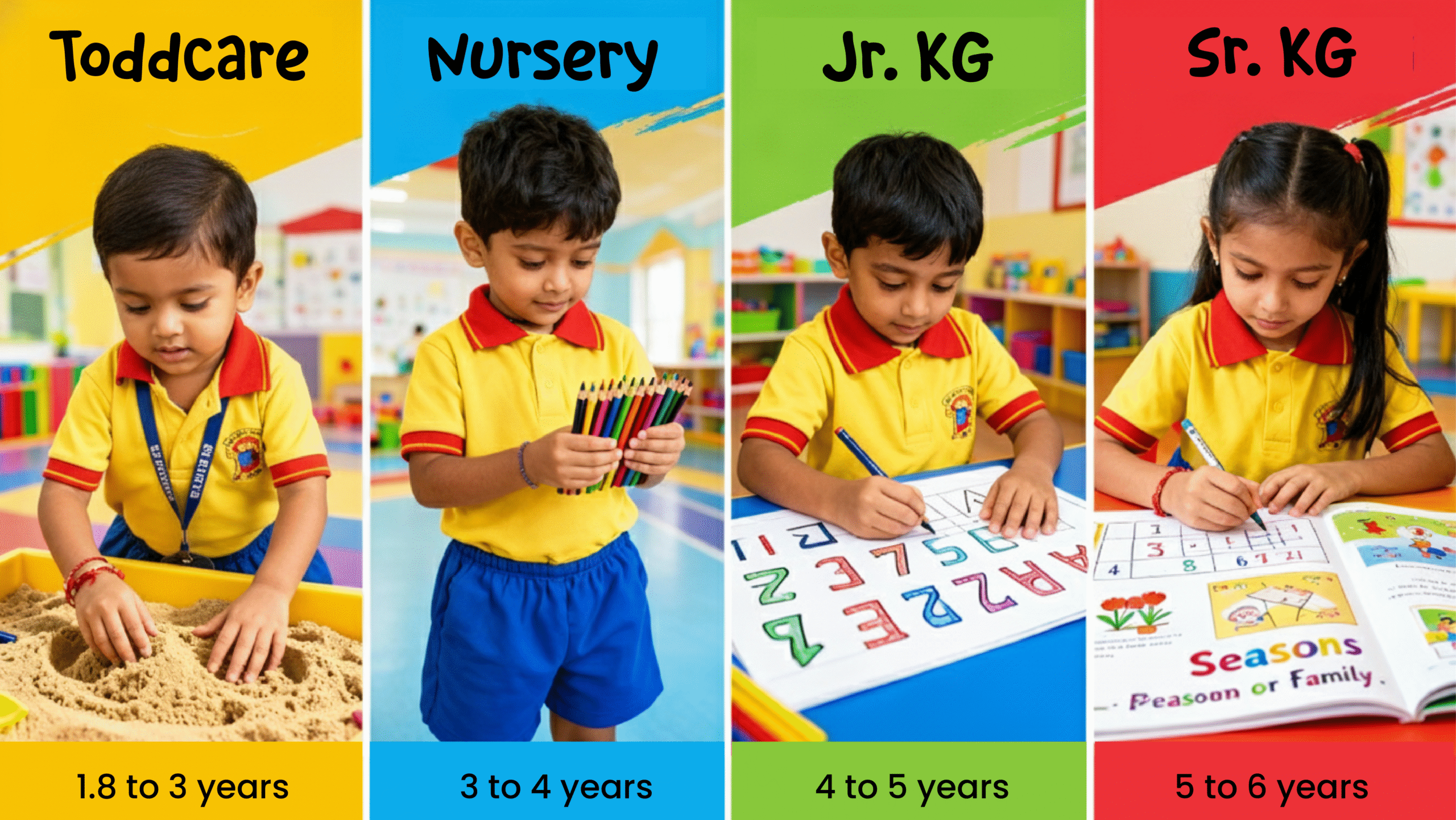- Email info@shantijuniors.com
- Phone +91 99796 66660

| Stage | Age Group | Focus Area | Key Outcomes | Duration |
| Toddcare | 2-3 years | Socialization, exploration | Comfort with group play | 1 year |
| Nursery | 3-4 years | Early concepts, independence | Speech, motor skills | 1 year |
| Jr. KG | 4-5 years | Foundational literacy & numeracy | Confidence, curiosity | 1 year |
| Sr. KG | 5-6 years | School readiness | Academic & emotional maturity | 1 year |